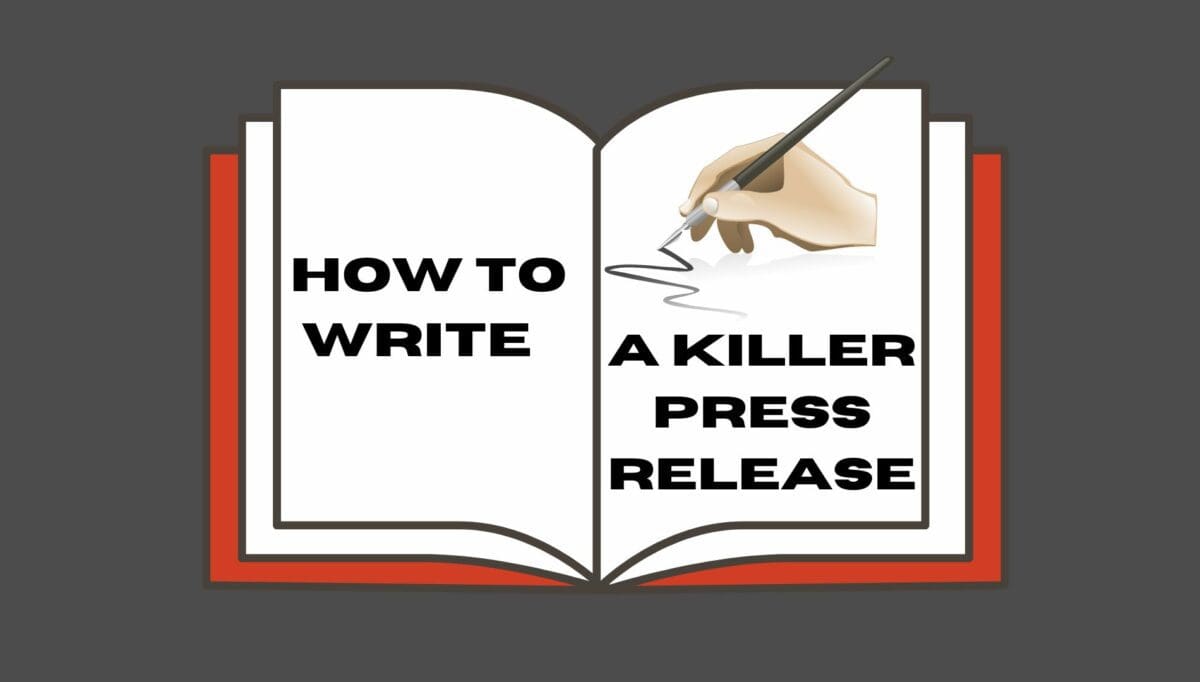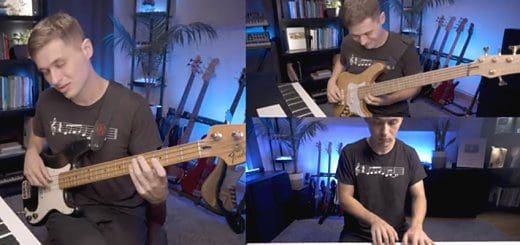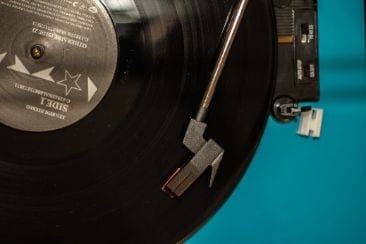If you live for live music and want to get out there gigging with your own music, we’ve got your back with this live music gig guide.
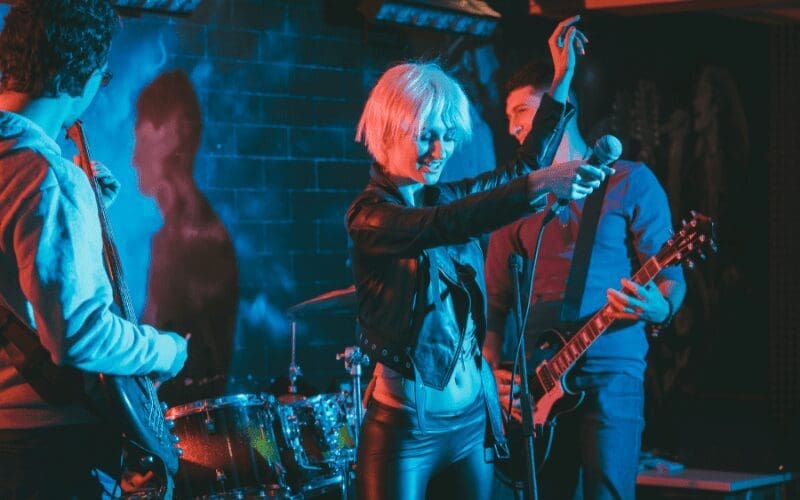
Find out how to get music gigs, what gear you need, places to play live music and last but definitely not least, how to get paid. Without further ado, let’s get into these tips for gigging musicians and artists!
The Dream

Once upon a time, the dream of every kid who ever picked up a guitar or a set of drumsticks was to get “signed” by a record label, record an album, and then set out on a world tour to perform their music live in fabulous venues to multitudes of adoring fans.
The Reality
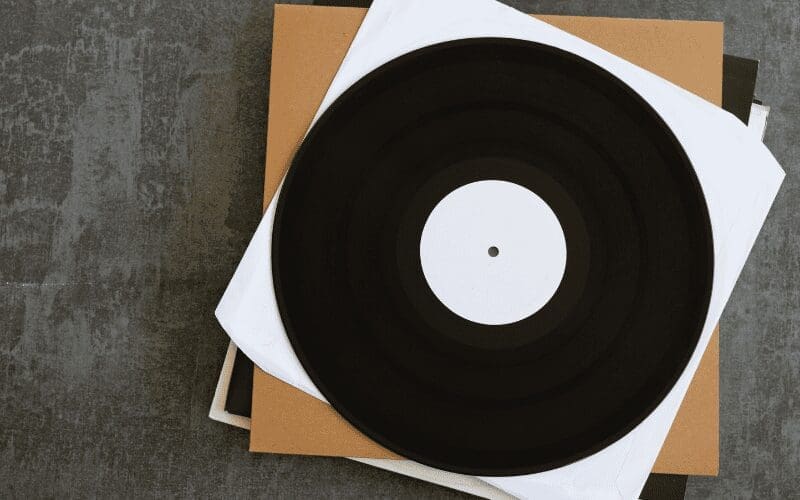
Well, the record label dream doesn’t come true for everyone (it didn’t for me). But I’ve instead achieved something wonderful and real, and with a bit of work, it’s in every musician’s grasp. It’s really not that difficult to find music gigs that pay!
I’m currently playing up to 150 dates a year, with these gigs providing the largest percentage of my income. In nearly 40 years of booking shows, I’ve learned a few things.
So What Is A ‘Gig’?
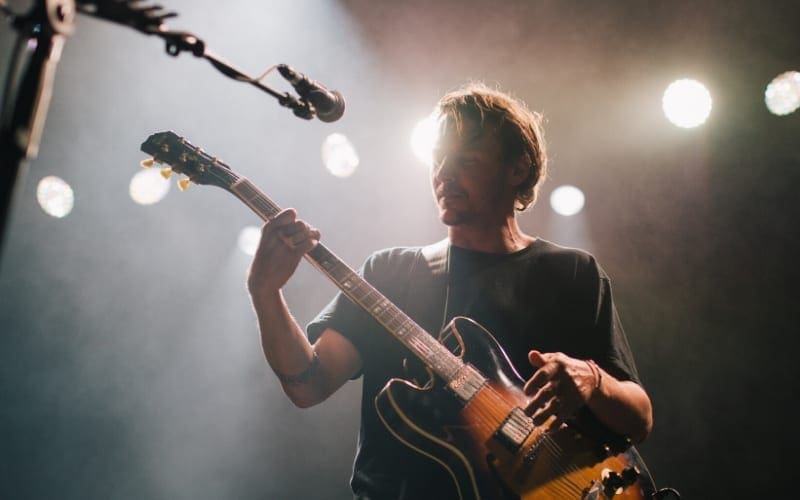
The word gig is used for any kind of live music event. The word gig can be used whether it’s a grassroots gig or a larger gig, such as a ‘concert’.
The history of a gig and its meaning in music is a bit of a mystery. Some say that the term was first coined by jazz musicians in the 1920s. It’s also possible that it’s derived from the French word ‘Gigue’ which is a dance to live music. What the true origin of the word is, remains a mystery.
The Basics
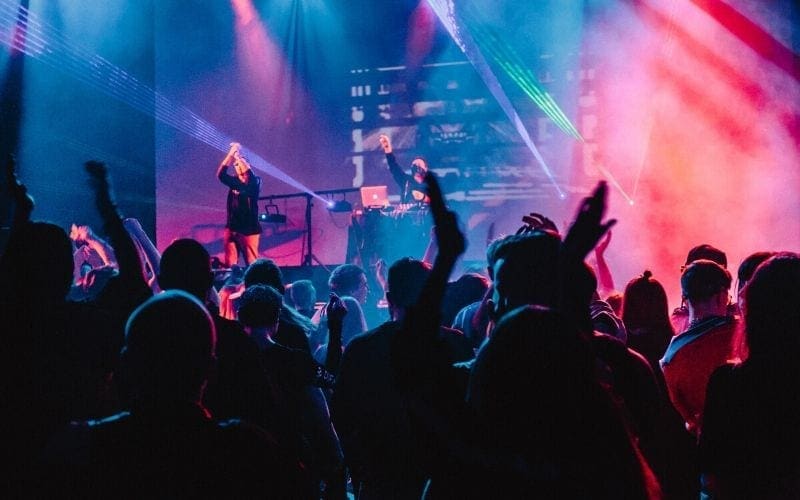
So, you’ve been honing your skills, practising your instrument and/or your singing. Maybe you’re a solo act, singing and playing piano or guitar, or your band is ready to get out of the garage and into actual live music venues. You feel like you’re ready to take the next step, but first, you need to know how to get started.
Where can you find (paying) gigs to start out, or if you’re already gigging, how do you grow your list of venues to the point where you’re playing as much as you’d like… even enough to make a living? What gig gear do you need for your music? etc.
Put On A Show
First, let’s be real… you need to have a modicum of talent. But the good news is, you do NOT have to be a virtuoso to play live music venues and get paid for doing so. The key is to put on a show using whatever you have to offer and to connect with your audience.
Talk to them. Look at them now and then, plus remember to smile! Know your material well enough to feel relaxed. Stage presence is everything. The point is, you can’t just stand (or sit) up there like a human jukebox and expect them to get excited. Let them in! They’re not against you… they WANT to have a good time. Live streaming is also a good option, you can ask your audience to add to a tip jar too, or just use live streaming to get some experience!
Make A Good First Impression
It also creates a good impression to dress up a bit. Now understandably, many bands want to “just be themselves”… but I’m telling you, venue managers and owners, not to mention the audience, will notice and be more impressed if you have a ‘look’.
Remember, you’re trying to make money in this industry, so you need to treat it like a business. As far as I know, not many successful business people show up at work looking like their plan that day is to mow the lawn.
Now, assuming you’re practised, and polished, you understand that looks are important, and you feel you’re ready to get yourself in front of an audience, let’s talk about how to find those paying music gigs!
First Gig Tips
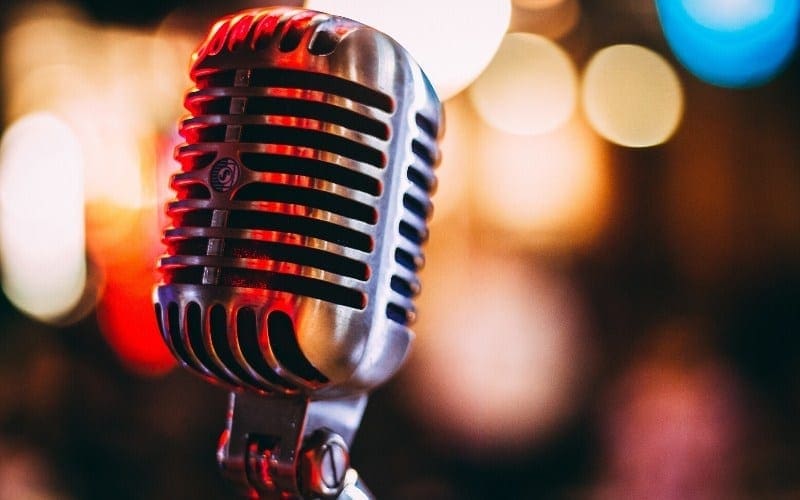
First and foremost, you need to have enough songs to fill one to four sets, depending on the live music venue and what type of activity you are. Artists performing all-original music often play just one set that lasts 45 minutes to an hour, as more than one artist tends to be on the bill in original-music settings.
To fill the time, you’ll want to have about 15 four-minute songs. Do the math according to the length of the set you‘ll be doing, allowing for a bit of stage banter between songs (but don‘t overdo it… you’re there to play music, not tell your life story). By all means, time your set in advance… don‘t guess! The last thing you want is to run out of songs before your time’s up.
Stick as close as possible to your allotted time slot… a minute or two over or under is usually ok. Keep in mind, if the venue owner or manager is paying attention, and you don‘t keep to the schedule, you may not be asked back. If you go too long, you’re also cutting into the next act’s time, and I can assure you they won’t appreciate it. You want to build camaraderie and community with fellow performers.
Get To Know The Other Artists
Getting to know other gigging artists is an excellent way to book more shows, as sometimes the “headliner” is allowed (or even required) to fill the evening’s other time slots. If you conduct yourself as a professional and are easy/fun to work with, they’ll likely want to share a bill with you again.
If you’re playing cover music (songs by other artists) or a mix of covers and originals, you can generally expect to play three to four sets of 45 minutes to an hour each. Again, time your sets, or individual songs, and do the math. I can’t stress how important it is to stick to the schedule the venue has laid out.
It’s easy to lose track of time while on break talking to friends, but be aware and WATCH. THE. CLOCK. If you have to be told even once to “get back up there” or are playing shorter sets than required, you’ll likely never play that venue again.
What Equipment Do I Need To Play Live Music?
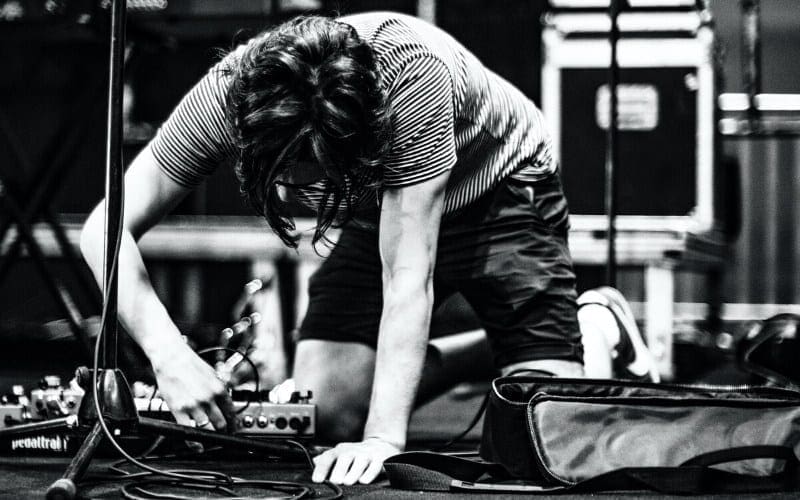
The gig gear you need varies wildly depending on the type of music you play, the number of musicians involved, and the venue you’re playing at. Many band-oriented venues have a house PA (public address) system, and musicians then bring their own instruments, amplifiers, keyboards, and any other personal gear they use when playing.
Often, in multi-act shows, there will be a “backline” provided… usually a drum kit, a bass guitar amp, maybe a guitar amp or two, and perhaps a keyboard. This allows for a minimal exchange of stage equipment between acts and keeps the show on pace.
Though it’s standard for each guitarist to bring his or her own axe and preamps too, most prefer their own amplifier as well. It’s probably not a problem to use your own, but always be sure to check with the venue or the headlining artist as to what you should (or shouldn’t) bring.
Providing Your Own Sound System
If you need to provide your own sound system, ask around and find out where other local musicians are buying or renting their PA gear. Personal referrals are far better and more accurate than any ad you see online or hear on the radio!
If you’re doing a solo show, you’ll want your own sound gear. Solo artists, duos and trios often entertain in restaurants (also known as supper clubs) and other smaller venues that rarely provide sound. Fortunately, it’s affordable for most musicians to purchase a small system that will work well in these settings. I use a 400-watt Yamaha StagePas system that costs around $700. It includes two speakers, a 6-channel mixer, power cord, and speaker cords, and can fill venues of up to around a 100-person capacity with plenty of sounds. There is an output jack for a powered monitor and built-in effects.
Others
It’s also imperative to invest in an electronic tuner. No matter how skilled a player you are, if you’re even slightly out of tune, you’re not going to sound good, period. Audience members might not even know why they aren’t feeling it, but they will know something’s off. Be sure to tune your instrument before the show and/or before each set.
Finally, in order to move all this around, you’ll need at least a gig bag for your musical instrument, and/or flight cases for all your equipment.
Gig Promotion Tips
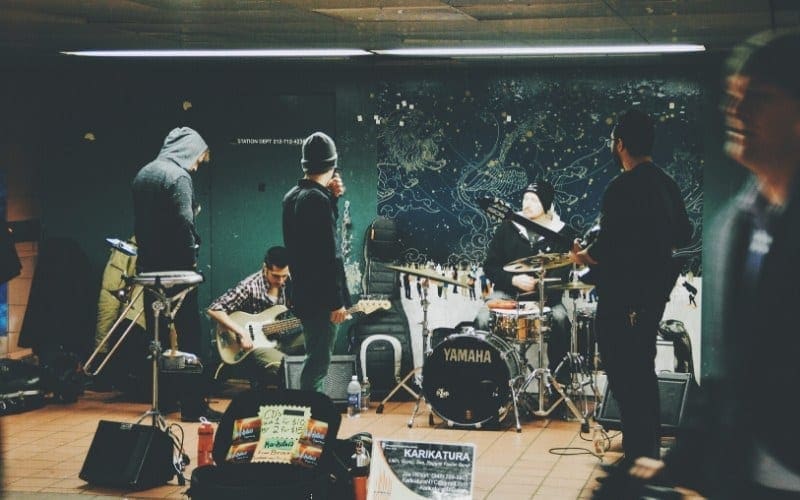
There are endless ways to promote your live music, including an EPK (Electronic Press Kit) but for starters, every artist should have at least these two basic promotional items:
1. Business Cards
Make them eye-catching but simple. Include your name, what you do (Classic Rock Band, Original Folk Duo), your phone number, your email address and your website address. If you’ve already defined your brand, make sure that your business cards are in keeping with that brand. Read more about business cards and more about these tips for networking in the music industry.
2. Website
There are several free or inexpensive options out there to create an effective site that will do the job. Web hosting companies like BandZoogle and Wix provide tools to design your own.
I pay about $20 per year to register the domain name (which protects anyone else from taking it) and $20 per month for hosting, which also includes an exclusive business email address.
You can set up pages for a bio, a blog, pictures, videos, reviews, merchandise sales, your show schedule, and more. If you have a website, this is also a great place to host an online EPK. Read more tips on this in our guide to creating the best EPK.
Having a website will make you look a lot more professional, as well as make it much easier for promoters, booking agents or other potential clients to find you.
Where Do I Find Live Music Gigs?
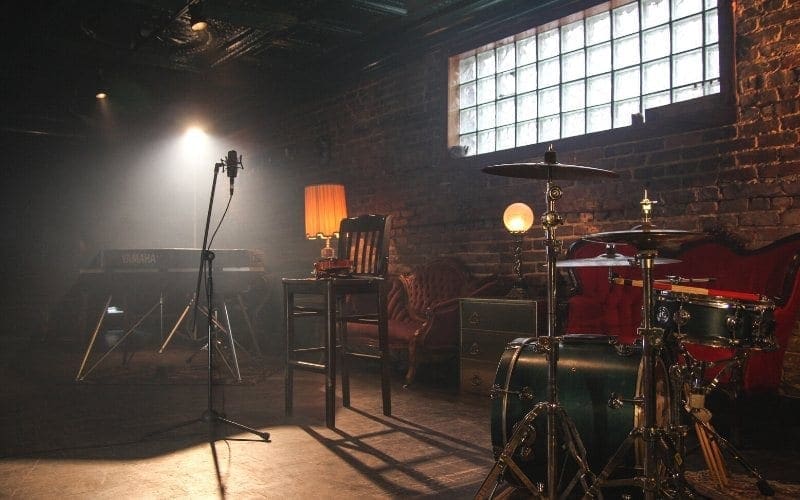
The first thing you need to do is identify your sound and your audience. Some live music venues, especially those that promote original music, feature all kinds of genres… you may see a punk band followed by a hardcore country group followed by a vocal quartet all in one evening. But most often, a venue has a certain clientele they’re trying to please and a particular type of music they expect from their artists.
Cover music buyers aren’t trying to discover new sounds, or be as hip as they can… they are in business to make money, and whatever they’ve found works for them in terms of music genre, that’s what they will pay for, and will have little to no interest in experimenting. But whatever kind of music you’re offering, there are some ground rules:
Where To Start
You need to find venues (bars, restaurants, brewpubs, wineries, etc.) that feature music similar to that which you‘re doing. Read your local alternative newspapers, do online research on the local music scene, and make a list of places where you or your band might be a good fit. Then get out and visit these places!
See who they’re featuring and make sure you’re a good fit. Get friendly with the staff. Find out who books the entertainment and ask for the best way and the best time to contact that person. Leave a business card, then follow up in whatever way was recommended.
Following Up
If you get a phone number, here’s something to be prepared for: it is often a challenge to get to speak with the music decision-maker. They get dozens of inquiries from artists, and they just don’t have the time (or the patience) to take all those calls. But that doesn’t mean you should quit trying! The trick is to be persistent without being a pest.
When you call, be friendly with whoever answers the phone when they tell you that so-and-so “isn’t available“. Ask if you can leave a voicemail, or if there is an email address to which you can send some promo. If you get an email address, that’s great!
At that point, you simply switch to email communication. If you get transferred to voicemail, leave a short message; if you don’t hear back within a couple of days, call and leave one more. Then let it go for a while. Don’t pester them. Try again in a week or two, then every 2 or 3 months. Keep your name in their ear while being polite, professional, and to the point.
Email Them
If you get an email address, send them a nice, short note stating you’d love to play there, you’ll do a great job for them, and feel that their customers would dig what you do. Attach your EPK if you have one, and/or include links to your website, and your contact info.
You never know when they may decide to give you a try because of your persistence, or they’ve heard you’re doing a good job in other venues, or they’ve had a cancellation, they’re in a bind, and decide to give you a call.
This business is not for quitters! But if you’re professional, persistent, and patient, good things will eventually happen. Having said all that, every booking won’t entail such a challenge… I’ve sometimes made a phone call or a visit to a new venue, made my presentation, and got booked right there and then. It’s not as common, but it does happen.
Other Options
There are also websites such as GigSalad that allow artists to set up an account featuring their artist info and a few pictures. The site invites music buyers (usually private parties) to ’shop’ for an artist, select a few that might fit their event, and then send proposals to each of them through the site. Then those artists can bid on the gig.
A basic account is free; those with more features vary in price. For many acts, these sites can be a helpful tool.
Collaborate
Another method I often use is to scout around for other artists whose acts are similar to what you’re doing. Visit their websites and look at their schedules. Make a list of those venues, visit their websites (or visit the venues themselves), find out as much as you can about them, and then start calling or emailing.
I’ve gotten lots of gigs doing this… and no, it’s not “stealing”. In fact, when I speak to the buyer (or send an email) I’ll even mention that artist’s name: “I see Joe Blow performs there. We’re similar in style, so if your audience likes him, I’m sure they’ll enjoy my music as well.” If you personally know that artist, even better… ask if you can use his or her name as a referral.
If you’re looking to meet other artists and musicians, make sure to check out our global music industry marketplace.
Sometimes venue websites give specific instructions to artists seeking gigs as to how to apply, or even have an online form to fill out. The key is to FOLLOW UP with them. If you just fill out a form and call it a day, you’re not going to get much work.
How Much Should I Charge?
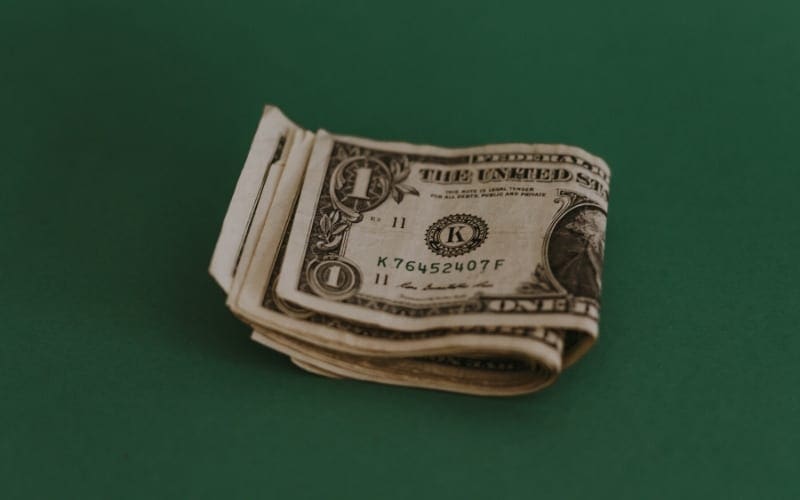
This varies depending on the venue and the type of music. Original bands and artists tend to make less, at least until they’ve developed a following and a track record of filling clubs with fans. It’s not uncommon for 3 to 5 bands to split an evening at a club or perhaps in a small theatre they‘ve rented for the show, each doing one set, and simply dividing up the proceeds (after the venue takes a predetermined cut, which they often do).
Sometimes the hosting band gets paid whatever they were able to negotiate with the venue, and then, in turn, pays each “guest” artist a pre-agreed-upon fee.
Tickets
Other times, the original music scene, however, the venue doesn’t pay the artist anything; the artist’s money is made by selling advance tickets and/or charging a ‘cover’ at the door, maybe $8, $10 or as much as $15 or more, if the bands are able to command that rate.
You don’t want to price your show too high of course, as to discourage people from attending, but don’t sell yourselves short either… if it’s too little, it gives the impression the show isn’t worth much.
Merchandise
It’s also a good idea to have some merchandise on hand. T-shirts, hats, posters, stickers, coffee mugs, fridge magnets, and CDs if you‘ve got them. The list of possibilities is endless.
Because CD and even download sales are basically in the tank, artists nowadays make a large percentage of their income from merchandise at live performances.
Check out our articles on How To Make Merch – Make Your Own Merch & Other Options and Merch Ideas For Artists & Bands: How To Come Up With Band Merch for more information on merchandise!
Function Gigs
For cover musicians playing function gigs, I’ll be frank: the money is better. I’ve been in original bands and I’ve been in cover bands, and I’ve made MUCH more money playing covers. Since I’m in this business to make money, I play many more cover shows than original shows, and I don’t feel as though I’m any less “valid” as an artist.
I sometimes play an all-original set at a coffeehouse or brewpub that encourages originals and make anywhere from $25 to $100 for a set. I enjoy myself and feel good about sharing my original music with an audience and that‘s enough for me.
Bars & Restaurants
But to keep my bills paid, I mostly play in bars and restaurants whose patrons want to hear music that’s familiar to them. The key is to find songs you LIKE playing, but that most audiences will also be familiar with. Believe me, there are enough songs out there to choose from… you don’t have to play ANY song you dislike just to please the crowd.
You could, in turn, burn yourself out on performing. It has to be fun for you first; if you’re enjoying yourself, it’ll rub off on the crowd. If you’re churning out “Sweet Caroline” for the thousandth time and resenting every second of it, they’ll sense that too, and no one wins.
I live in Minneapolis – St. Paul area, so I’m speaking from my experience in this market. If you live in a small town with only a couple of bars or restaurants that host live music, you’ll need to travel a bit to find gigs… no way around that.
I myself stick to a 2-hour radius, and that seems to work pretty well. With any gig, you have to weigh the amount to be made against the amount of money (and time) to be spent, and in the end, it’s up to you whether a gig is worth taking or not.
How Much To Ask For

For a typical 3-hour solo show in a restaurant, bar & grill, brewpub or winery, I generally make between $200 to $300. The jobs and amounts I’ll accept vary with the distance I have to travel, how long I have to play, if they provide free (or discounted) food and drink, and whether they allow a tip jar and merchandise sales (most places do).
If you’re starting out, or relatively new at gigging, it’s ok to ask for less, though for a 3-hour show, I wouldn’t recommend accepting less than $100-150. Coffee shops pay quite a bit less… sometimes only a tip jar and a free beverage, but set times are generally shorter. If you feel that’s enough, and just want to get yourself in front of an audience, go for it. In the end, it’s nobody’s business but yours how much (or how little) you’ll accept to play a gig.
Other Options
Another option you may want to explore is the senior rental community market. Assisted living/memory care facilities in particular often bring in outside musicians to perform for their residents. This is a niche I’ve found that pays well, and you’ll never find a more appreciative audience. (Note, however, that these events are usually held during the week, and during the day, so if you’ve got a full-time day job, it probably won’t work for you.)
The way to find these gigs is to find them online, then get on the phone and send a LOT of emails. If you call (the best option), ask for the name of the activities coordinator. If they are not available, they almost always have voicemails. Leave a message, then try back in a couple of days.
If you get voicemail again, leave another message. If no response, then call the reception desk again and ask for the activities coordinator’s email address (they‘ll almost always give it). Then, begin a series of emails, always keeping with the “be persistent but don’t be a pest” model.
How Much To Charge For These?
These shows are typically 45 minutes to an hour and generally pay between $100 and $150… Not bad for an hour’s work. Don’t feel like you “shouldn’t take their money” because they‘re caring for our precious senior citizens. It is indeed wonderful work they’re doing, but they are businesses with budgets!
An exception might be a church or charity-operated facility. In these cases, I do tend to be flexible but never accept less than $75. When you’re trying to make a living from music, you have to have a bottom line. All-ages apartment communities often throw resident parties as well; it’s another market I’ve worked for. The rates paid are similar to the senior communities, though you’ll typically play 2-3 hours as opposed to the 1-hour senior performances.
How Do I Make Sure I Get Paid?
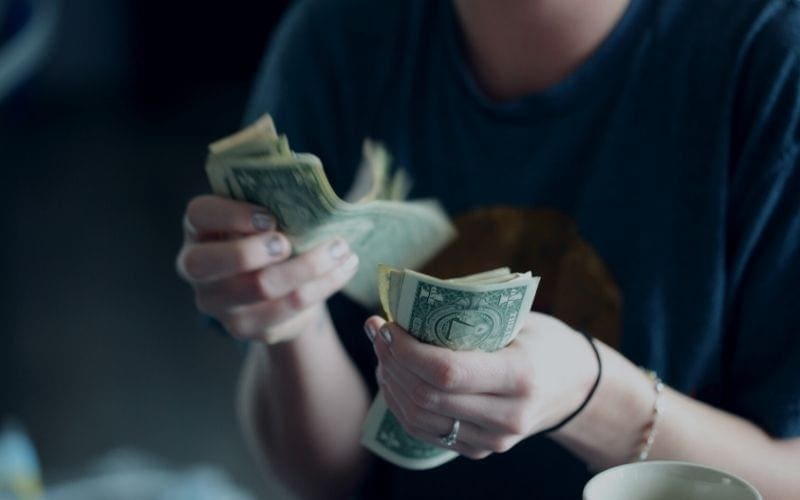
Unfortunately, there are unscrupulous buyers out there who will do their best to rip you off. The best defence against things like that happening is to, whenever possible, play for establishments that have been around for a while and have a good reputation.
Ideally, you can talk to other artists who have played there and ask about their experience. Of course, contracts are a good idea, but to be honest I rarely use them.
My thinking is this: if I’m dealing with an established venue, especially one I’ve been working with for any length of time, and we’ve emailed back and forth with the terms of the gig, that’s enough in writing for me. Other than a couple of shady bar owners back in the 1980s who tried to underpay us, I’ve never been ripped off.
There is an exception: When I’m dealing with a private party I don’t know personally, I do draw up an agreement. The amounts for these gigs (weddings, company parties, etc.) are generally a bit higher (for me or my duo, between $400-$1,000) so there is more at stake, especially if I have to travel some distance to the gig. I accept either cash or a check.
Yes, it could also be considered a risk to accept a personal check, but that’s almost always what the bride’s father is going to pull out of his pocket at the end of the night. If it concerns you, you can always stipulate cash or a cashier’s check on the performance agreement.
The Main Things to Remember
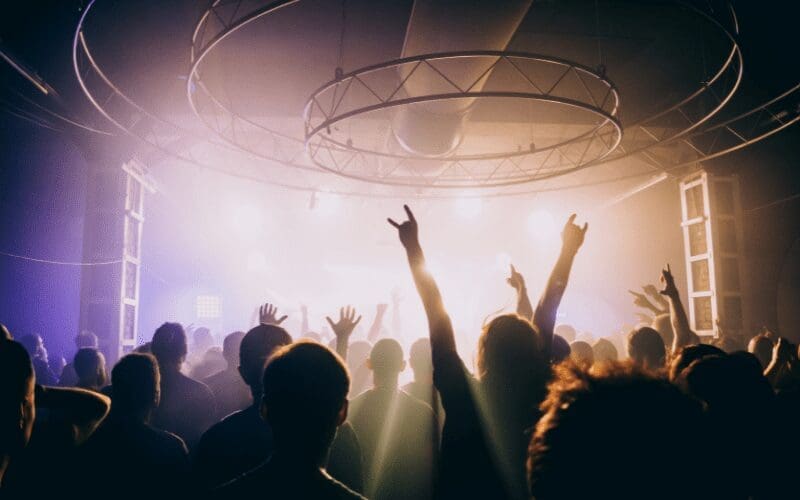
1. Practice & Prepare
Everything hinges on the product–YOUR MUSIC. If you don’t have a great product, no one’s gonna buy it. If they do buy it and it doesn’t ’wow’ them, they won’t buy it again. It’s that simple.
Select your songs and practice them until you can play them in your sleep. Arrange your songs into 45- and 60-minute sets (set times differ in various venues). 60 songs (about 4 hours worth) should be plenty to start with. Add songs and switch things around as you go along to keep things fresh for you and your audience. Pick out some cool outfits to wear!
2. Equipment
For bands, the decision to own or rent a PA system largely depends on how often, and where, you perform. If your schedule is full and includes venues that don’t have their own sound, investing in a system might pay off. When you’re not gigging all that often, but need to have your own PA now and then, renting might be your best bet.
If your itinerary mainly consists of clubs that provide sound systems, the decision is easy. Remember to always check with the venue or the host band to find out what you’re expected to bring to the show. For solo artists, it’s more affordable, and necessary, to have a small PA system. Shop around, and ask other musicians’ advice.
3. Promotion
Every artist should have, at a minimum, business cards and a website. An EPK is a good idea as well, but in lieu of that, you can always include links to your website in your emails. Creating colourful flyers for gigs and posting them around town never goes out of style.
T-shirts and other merchandise can get help to advertise while putting some money in your pockets. Remember, the music business may be a fun business, but it is a BUSINESS
You need to appear professional at all times. Thankfully, looking and acting like a pro is not difficult or even all that expensive. If you’re not good at writing bios, creating websites, or designing promotional items, find people who are!
4. Where & How
There are many different places to play… bars, clubs, restaurants, brewpubs, wineries, coffee shops, theatres, city celebrations, music festivals, weddings, company parties, charity events, casinos, rental housing communities, grand openings…
I’ve done all these and more! Any time there is a gathering of people who want to have a good time, music can complement that event. Get creative in finding places to play. To find and connect with the decision makers and the buyers, email is ok, the phone is better, and a visit is best. It’s all about creating relationships. People like to work with people they like.
5. How Much & How To Collect
For original artists and bands, the sky’s the limit. For most of your shows, until you become a hot enough commodity that venues will guarantee you a certain amount, you’re going to be paid according to how many people you can draw. Promoting the show is key. Put up flyers, use social media, consider placing ads in the local papers, call friends and family and invite them personally (this works far better than a text or general invite). Believe in your product – your music and sell it.
Be sure to have agreements in place (written or verbal, it’s your call) with other acts on the bill as to how they take will be split. For cover musicians, things are more cut and dry… you will usually play for a set amount. For a typical restaurant or brewpub gig, expect to play 2-4 hours and be paid between $150-$300, more or less. Put out a tip jar if allowed… I made almost $4,000 in tips alone last year.
Most venues pay in either cash or check; remember, you may be issued a 1099 for what you were paid, so be prepared to pay taxes on that money. If you perform often, you might consider making advance payments throughout the year to the IRS so you don’t get hit with it all at once come tax time! Use performance agreements, or contracts, at your discretion. If the venue or buyer requests one, by all means, draw one up.
6. Remember… It’s A Business!
Act like a professional while being relaxed and being yourself. The music business is certainly known for its colourful characters, and yes, it’s art… but it’s also a BUSINESS, and if you want to make money at it, you’ve got to treat it as such. Be polite, be friendly, be dependable, and be honest. Always be on time, and watch the clock!
Make sure your sets and your breaks are timed correctly. Don’t sit in the corner staring at your phone while on break; work the room and chat with customers. They’ll likely stay longer if they feel they’ve made a connection with you, and will probably tip better (if applicable). Learn the staff’s names.
ALWAYS, ALWAYS, ALWAYS thank the buyer for hiring you!!! I cannot stress this enough. You should thank them in person if they’re at the show, then send a follow-up email the next day thanking them again and asking for another date. I also ask if they’d be willing to write a sentence or two about how they felt about my performance (as long as things went well!).
Lastly, if they know of any other venues that might be interested in booking me, and if I can use them as a referral. Squeeze every bit of opportunity out of every gig!
If you’re putting a whole tour together, make sure to have a look at our DIY touring guide. Be prepared and know exactly how to plan and prepare for a tour.
That Was Our Guide On The Best Way To Get Gigs

We hope you enjoyed this article and found it helpful!
We recommend our guides on How To Have A Successful Band Rehearsal, How To Take Good Band Photos, and How To Promote Your Music On Reddit to get you started!
Are You A Musician Or Artist?
Showcase yourself and get discovered by fans and music reps through your very own artist site. Collaborate globally with other musicians, songwriters, producers, and more. Finally, amplify your music to those that need to hear it with music promotion and professional sharing tools. Try all of this out for yourself by joining Мusic Gateway. Get your 14-day free trial, no strings attached.






